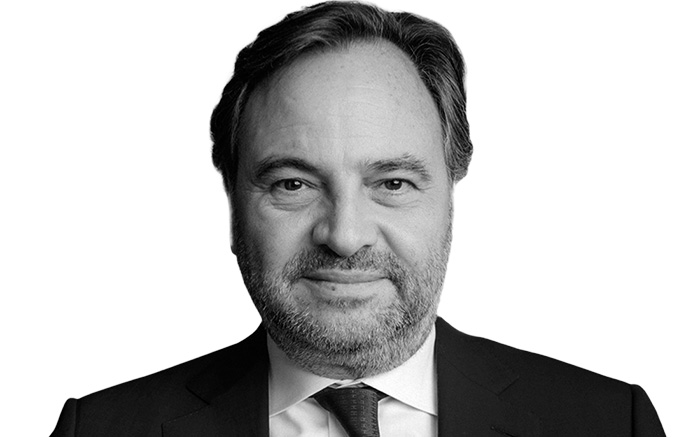Q&A: MVision’s Mounir Guen on fundraising in 2023

Mounir Guen, chief executive officer of MVision, discusses the complex effects of escalating interest rates, today’s hottest industry sectors and the rise of alternative private equity investment models.
How would you say private equity has been affected in 2022 by macroeconomic and political events such as the invasion of Ukraine and rising interest rates?
Mounir Guen: To take interest rates first, many private capital investors have significant debt exposure, so rapidly rising rates will impact them hard. As we have seen in the past year, you have a significant classic denominator effect driven by the drop in value of the fixed income part of their portfolios. This has led to less capital being available for private equity.
Another effect of rapid changes in interest rates is that GPs’ ability to manage debt structures easily – and, by extension, to manage companies and to undertake M&A activity – becomes a little disjointed, which has also meant less money deployed in the system for private equity.
Meanwhile, the war in Ukraine has created a spike in demand for certain commodities and products, which has benefited some businesses while others have suffered. But the real issue has been the rise in energy prices across Europe, which has affected all businesses operating here to some degree. Some need energy for their core activities, and they all need to heat their offices.
How have private equity firms found fundraising this year?
Guen: Because of the denominator effect mentioned above, LPs with portfolios with large amounts of fixed-income investments now have less money available.
There is also the fact that the marketplace has changed. One of the big shifts over the past couple of years is that, because investors are allocating more capital to co-investment or direct investment, there is now less money available for primary funds. But if you are a GP known for consistent returns and safe hands who offers regular co-investment opportunities, you can still find a path to fundraising relatively easily.
Another factor is that mega funds can dominate and significantly affect access to capital for the rest of the market. If all the large Nordic funds are raising this year, smaller funds in the region will not get any money outside their existing relations. For this reason, good communication with your investors is important – if they know that you plan to raise in 2023, you can work your targets.
Do you expect the slow processing of investment decisions by LPs that we have seen in 2022 to continue in 2023?
Guen: I think the slow processing of investment decisions will continue until 2025. Investors are in a position at the moment to take their time to make decisions and to reflect on portfolio construction. As a result, it has become more and more difficult to be a new GP – except in the US, where many large LPs have emerging manager programmes, which supports the creation of new private equity funds.
One big change relevant to this area from the past couple of years has been the growth of retail investment, particularly with legislation in France and Spain. The industry really needs an injection of fresh cash into primary vehicles to allow it to grow more itself and to nurture growth. We need new GPs, new energy, new creations and new approaches.
How have impact funds found fundraising this year?
Guen: I have seen a lot of money being allocated to impact funds, and the amount of money available to them is growing.
To what extent have you seen the trend for LPs looking for specialisation in the private equity funds they invest in – for example, by geography or sector – continue this year?
Guen: The focus is sector speciality. There are some very hot sectors at the moment – for example healthcare and financials. The consumer sector has many very good companies, some with excellent brand-building capabilities. In some sectors you can bring in more efficiency, while technology can be a game-changer. Then there are interesting overlaps – for example, taking elements from the gaming industry into healthcare. You alter the software and then use it to provide alternative healthcare diagnostics and expand development options.
In terms of geography, the US has been very highly performing and, frankly, hugely dominant in recent years, partly due to the fact that it has not been affected by the European energy crisis caused by the invasion of Ukraine, and also due to extraordinary performance in recent years.
Do you have any private equity predictions for 2023?
Guen: The market in 2023 will be a continuation of 2022.
One point I would like to mention is that in today’s market, there is a real merit to alternative models. Many private equity professionals are now looking at working investment by investment. Others are looking at listed products, or evergreen products. In Spain, a ‘pledge’ model has become very popular, where an LP will offer, say, €100m, and then a GP will come up with a range of investment ideas for the LP to choose from. There have been some real success stories with this way of working.
So I think we are going to see more new structures, especially outside Western Europe, the US and Asia, where it has been historically harder to raise money for private equity. As a promoter of innovative structural thinking, I think this is a great development for the industry.
This content was produced in association with
Categories: Insights Expert Commentaries Geographies UK & Ireland France & Benelux Southern Europe Central & Eastern Europe Nordics DACH ROW
This content is free for all our visitors.
Would you like to check out the rest of our fantastic offering? Get in touch with us to discuss our trial and subscription options.
Contact us
